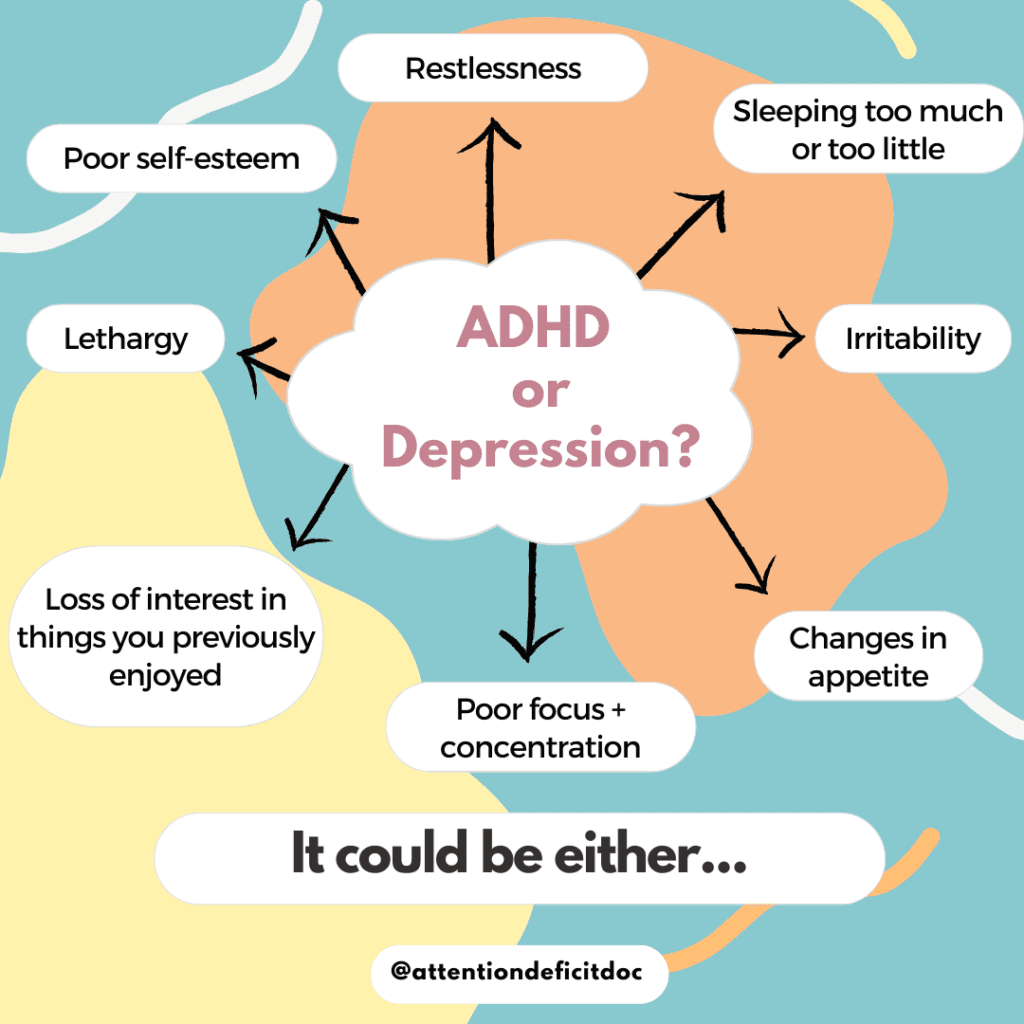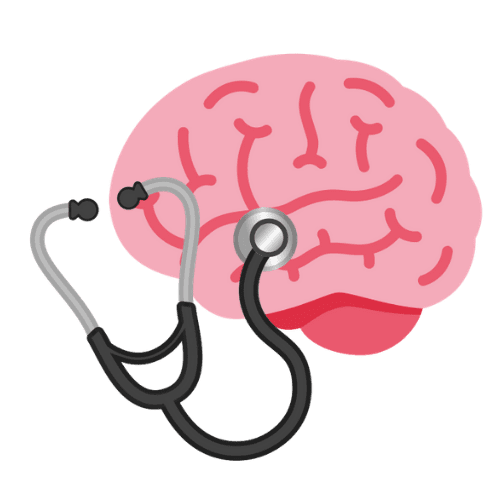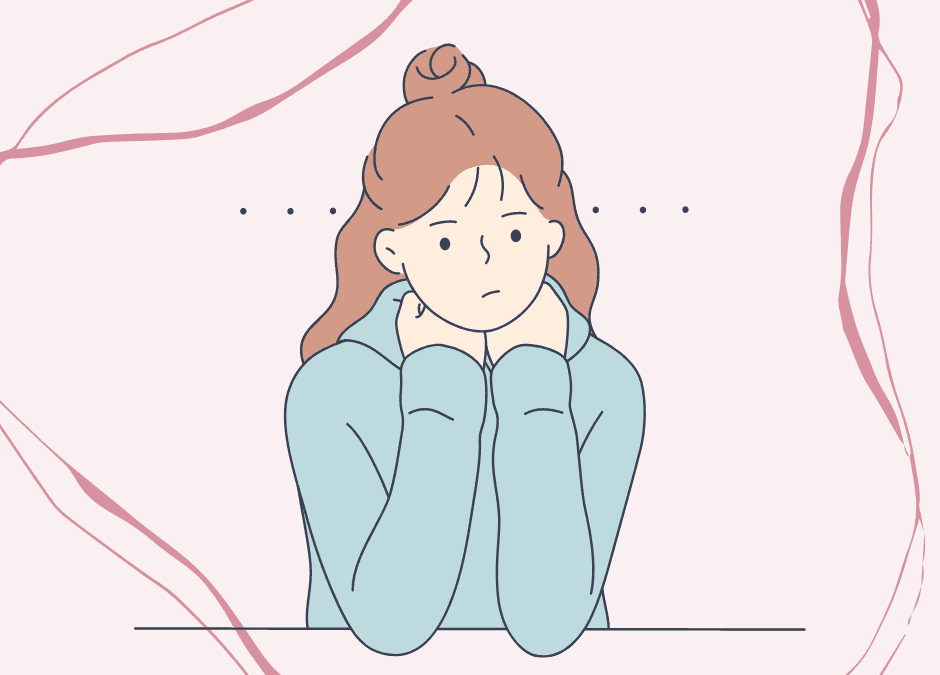This week I’ve been reflecting a lot on ADHD and low mood.
All of us feel low at some point – it’s a universal element of the human experience to feel a bit rubbish when something doesn’t go well in life. When we persistently have a low mood however, it can be diagnosed as a clinical disorder – known to most of us as depression.
Depression and ADHD
ADHD and depression frequently co-exist, and ADHD itself is a known risk factor for developing depression and other mental illnesses (ref).
There are possible explanations for the link between ADHD and depression. Many people with ADHD find that their self-esteem is impacted by their symptoms, and this leads to low mood. I will admit that I am prone to a bit of negative self-talk, and criticise myself for things that are simply part of my ADHD – excessive talking, forgetfulness and struggling to concentrate when I should be.
I have also struggled with depression in the past, both before and after my diagnosis, and my high expectations of myself have certainly contributed. Additionally, ADHDers often experience social rejection and difficulties all the way from school to the workplace – making them even more vulnerable to depression.
Could depression be the wrong diagnosis?
However, far too often, ADHD is misdiagnosed as depression or anxiety. One study estimated that nearly 1 in 10 adults diagnosed with depression also have ADHD (ref).
During a hospital clinic one day, I met a patient in their 20s. I really empathised with their story – they were a similar age to myself, and they had struggled with persistent depression and anxiety for most of their teenage years. No treatment had much success, and they were diagnosed with treatment-resistant depression – until a clued-up doctor identified that the culprit was actually ADHD. The patient started medication and sessions with a counsellor specialising in ADHD. Although they still experienced sadness for the years impacted by their symptoms, they were now, in their own words, “a different person”.
(You can read more about ADHD diagnosis here).
The Overlap Between ADHD, Low Mood, and Depression

It is understandable that ADHD symptoms are often misinterpreted as symptoms of depression, as there’s a lot of overlap:
- Sleeping too much or too little
- Poor self-esteem
- Poor focus and concentration
- Restlessness
- Lethargy
- Loss of interest in things you previously enjoyed
- Irritability
- Changes in appetite
I sometimes find it hard to differentiate signs that I am becoming depressed again, from the normal fluctuations in symptoms of ADHD. I often lose interest in things that I enjoy – but that’s because I’m no longer hyperfocusing on them. I get lethargic and irritable too, but I can attribute that to fatigue.
Is it ADHD or Depression?
To tell the difference between my ADHD, normal low mood, and depression, the key question I ask myself is “Is this persistent?”. My ADHD traits normally vary day-to-day in how much they impact me, whereas when I have been depressed, they either stay the same or get worse. I often ask my partner for their opinion too – ADHD makes me focused on the now, and P can help me build a bigger picture with his perception of any changes. However, my way of assessing my mental wellbeing for any ‘danger signs’ may not work for everyone.
Research has suggested some clues to help us spot the difference between normal symptoms of depression and underlying ADHD.
One author suggests that history-taking should include a patient’s childhood, to assess if the classic signs of ADHD (inattention, hyperactivity and impulsivity) were present before the onset of low mood and depression.
Children can suffer from depression too, and it is recommended that particular symptoms make a diagnosis of depression more likely than ADHD (ref). These are:
- Thought patterns (hopeless, morbid or suicidal feelings)
- Severe anhedonia (loss of pleasure)
- Moving more slowly
It is clear that ADHD and low mood are linked and have a lot of overlap, so it is important that we do not dismiss any signs of poor mental wellbeing.
If you’re not feeling ok, your feelings are the only validation you need to seek help – do not let anyone tell you that your feelings aren’t real or important.
If you have ADHD and are struggling with low mood, depression or a mood disorder, it may be helpful to work with a mental health practitioner who specialises in ADHD. These practicioners are generally hard to access through the NHS, although they are easier to find privately. However, if the NHS is the best option for you (and your finances), it may still be worth trying any services you have access to, as it is still a step in the right direction.

